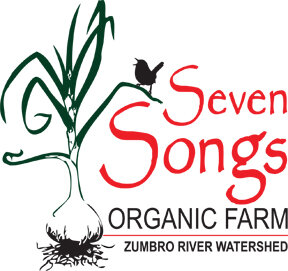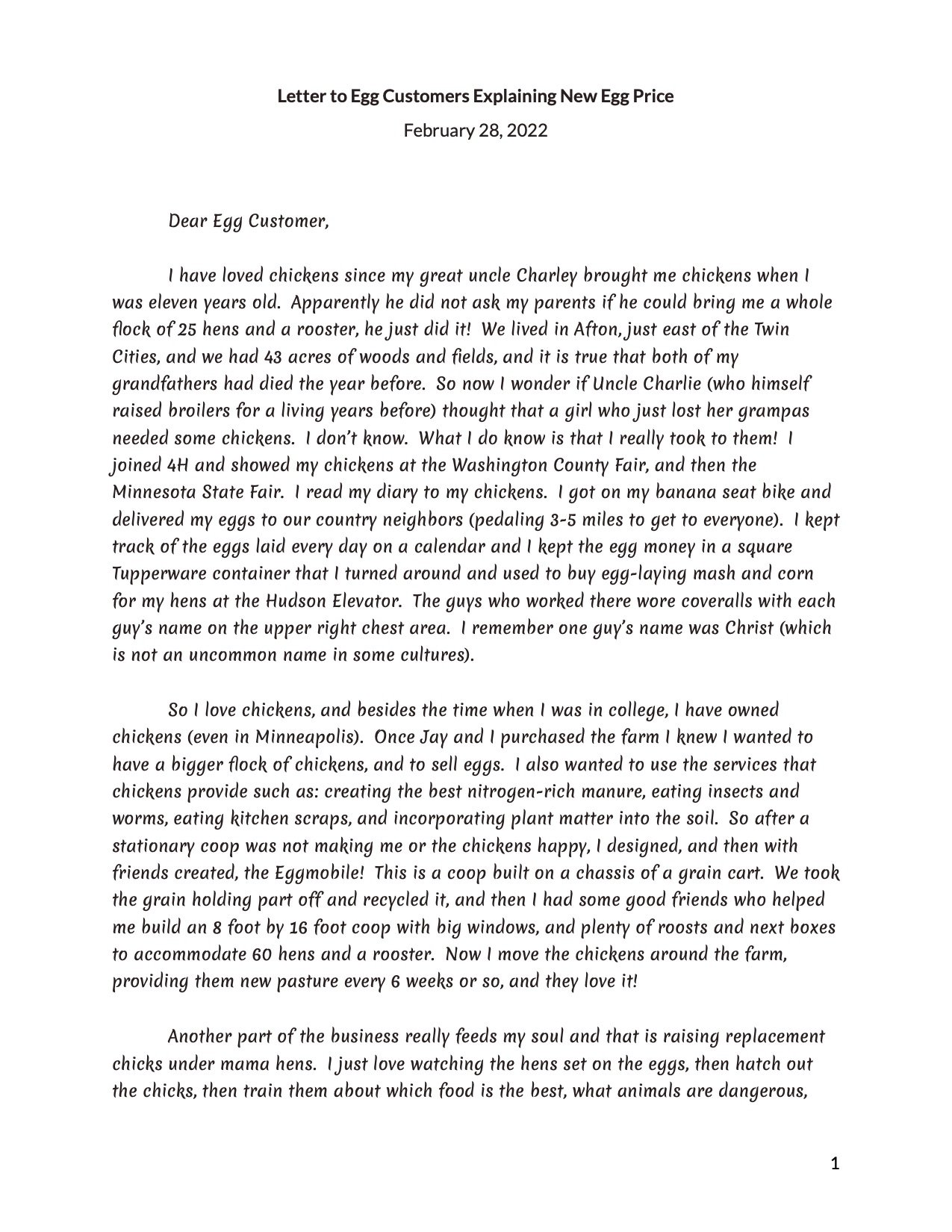I have loved raising chickens since I was a little girl. My hens are certified Animal Welfare Approved — they live the good life on the farm while boosting its fertility. And you get to enjoy the eggs!
The Chickens
The chickens who lay the eggs at Seven Songs Farm are a heritage breed called The Delaware. They were very common in the early 20th century and were a breed that was raised primarily for meat… but they also happen to lay a large number of large brown eggs.
They are currently on the American Livestock Breeds Conservancy “watch” list which means there are “fewer than 5,000 breeding birds in the United States, with ten or fewer primary breeding flocks, and estimated global population less than 10,000.” Our aim is to cultivate a strong breeding flock and to help save this breed—and indeed they were recently updated from a threatened status! We like them because they are VERY hearty and they adore foraging in the pasture and eating organic gardening scraps. We currently have 58 hens and one rooster.
Rather than using incubators, we breed our own replacement flock by hatching them under willing (we call them “broody”) hens. We started doing this in the spring of 2013. This method is the most natural: the hens provide warmth, and teach the chicks everything they need to know about the world – how to stay safe, find food, find water, and the laws of the “pecking order”. We provide the hen a safe place to hatch and brood her chicks, and the food and water she and the chicks need, but she does the hard work – that comes naturally to her!
The Delawares eat an all-organic “egg-laying mash” made from organic grains, and certified organic-approved minerals, balanced specifically for chickens from a company called Fertrell. The chickens are free to roam in a large fenced in pasture area, and they do! They spend most of every spring, summer and fall day outside and they spend most winter days venturing out at least a few times, unless the weather is very cold and windy (like -20F/25mph winds), then they are kept in.
I designed and with friend built a mobile chicken coop to be able to move the chickens around the farm, enjoying the vegetable scraps they might find and increasing soil fertility as they go.
Sometimes people ask us how a chicken can lay an egg without a rooster. Well, it is analogous to people, except a bit speedier. Human females produce one egg each month. Sometimes it is fertilized and sometimes it isn’t, but it is still produced. Same with chickens - EXCEPT for them it is about once a day (or every other day- depending on breed, time of year, feed, etc.). So roosters are NOT NEEDED for hens to lay eggs and many commercial egg “factories,” as well as small flock owners avoid the hassle and expense of a rooster.
We don’t really know what chickens think, but it does appear that our flocks of hens like having a few roosters around. Roosters are very good at looking out for and warning the flock of danger, and they will call hens to choice pieces of food they have found with a distinctive call and a behavior that involves repeatedly picking the food up and dropping it. This and all other chicken behavior is fun to watch. They are very entertaining!
The Eggs
Delaware chickens lay brown eggs, but we also have a few other hens that lay tan colored eggs which add up to a variety of egg shades. How fun!
The eggs are also different sizes. I do not grade our eggs, so you get the “starter” eggs laid by young hens, along with the larger eggs laid by our mature hens.
My eggs have dark orange yolks and a good true egg flavor. I recommend that you cook them the way you like to cook eggs. They are AMAZINGLY GOOD!
The yolks are a result of the dark leafy greens the chickens eat in summer, and the vegetable scraps and pumpkins they eat all winter. Chickens who just eat grains and minerals and seldom are allowed to venture outside lay eggs with very light yellow yolks.
Each egg is dated with the day the egg was laid (written in pencil on the shell). I think you ought to know exactly how fresh your eggs are and, in a small operation like mine, I don’t have dozens and dozens that are laid each day, so I don’t mark the whole dozen as laid on one day – because often they aren’t! All eggs are good for a few weeks unrefrigerated. If you choose to refrigerate your eggs they should last from 6-8 weeks.
You might notice that once in a while there is a blood spot inside an egg. This is the result of a small vessel breaking inside the oviduct of the hen as she forms the egg. Contrary to popular belief these little blood spots do not indicate that an egg is fertilized. Fertilized eggs look just like unfertilized eggs inside and out. Eggs with blood spots are perfectly fine to eat.
Our flock is certified Animal Welfare Approved by a non-profit called A Greener World. A representative from the company visits our farm every year and makes sure we meet a rigorous standard.
Certified Animal Welfare Approved by AGW is the only label that guarantees animals are raised outdoors on pasture or range for their entire lives on an independent farm using truly sustainable, high-welfare farming practices. It is the only label in the U.S. to require audited, high-welfare production, transport and slaughter practices.
You can see the standards for egg laying hens on their website.








